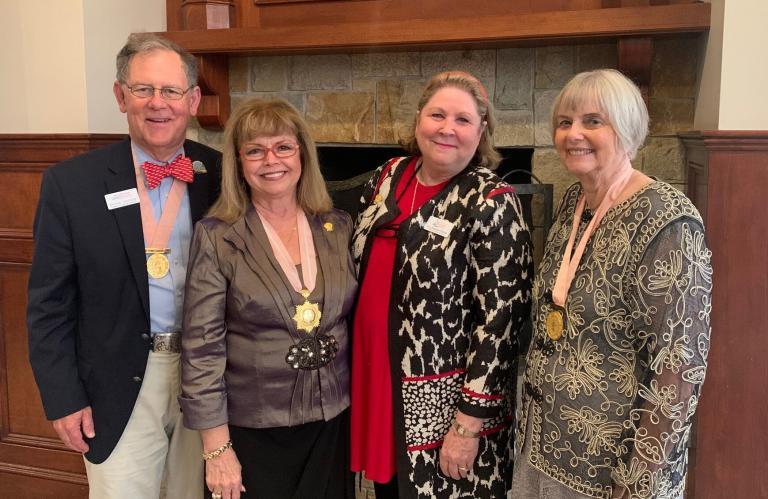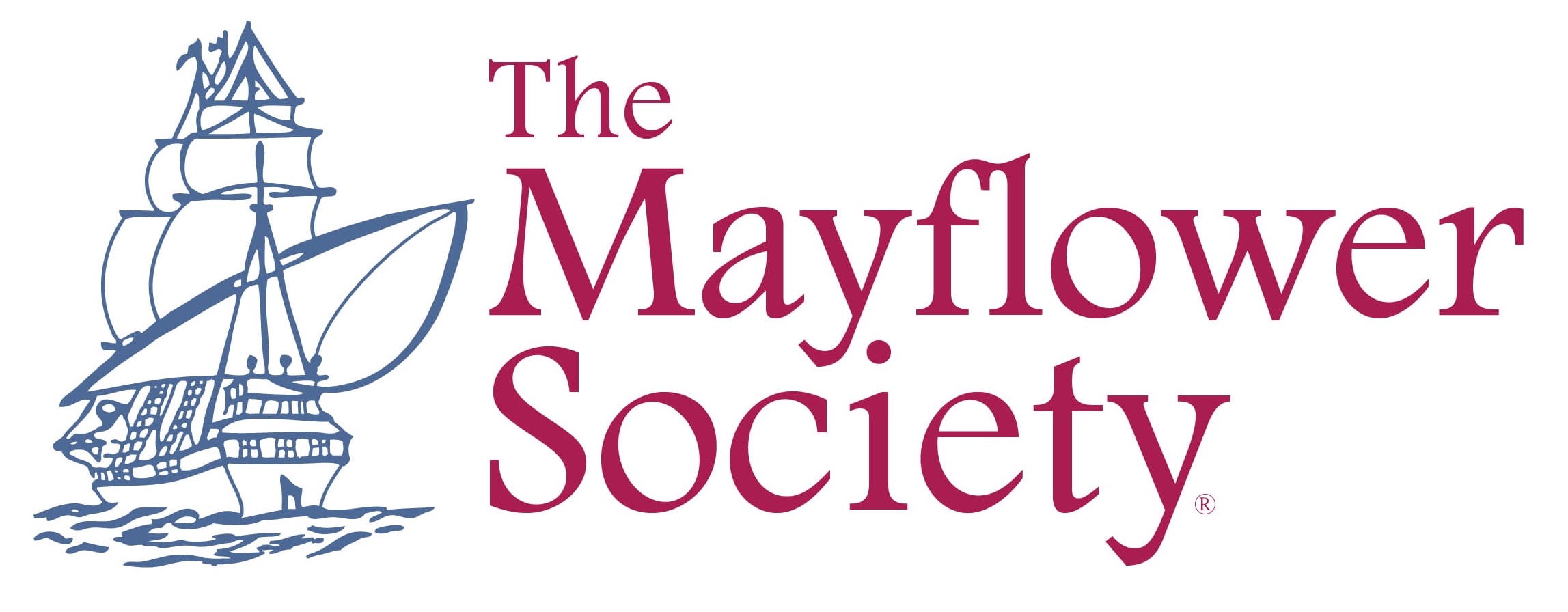Organization of the Society
- The General Society of Mayflower Descendants (GSMD) was established on January 12, 1897 when 27 delegates from the first four State Societies (NY, CT, MA, PA) met at Pilgrim Hall in Plymouth, Massachusetts.
- Today the society is made up of 54 Member Societies, formerly known as State Societies, and boasts a membership of over 31,000 members.
- The General Society is governed by the General Congress, the General Board of Assistants, and the Executive Committee.
- A staff of 20+ at the headquarters in Plymouth, Massachusetts handles the daily operations of the organization.
General Congress
The First General Congress was held on September 6, 1897 at the First Parish Church in Plymouth, Massachusetts. The date was chosen in honor of the anniversary of the departure of the Mayflower from Plymouth, England.
The General Congress is held every three years in September in Plymouth, Massachusetts, and while governance is done by officers and delegates, many members attend for the activities that are offered.
The General Congress is comprised of the Executive Committee (EC), Former Governors General (FGG), Former Assistant Governors General (F-AGG), Deputy Governors General, and Assistants General as well as delegates from the 54 Member Societies. Each Member Society is permitted one delegate for every 50 members or majority fraction thereof as of July 1st of the Congress year.
The General Congress has the power to amend the Constitution and Bylaws. Voting is carried out at Congress to approve motions, to amend the bylaws, and to elect Executive Committee officers.
The Constitution of the General Society is set up much like the Constitution of the United States, so that Member Societies have control over their own affairs.

General Board of Assistants (GBOA)
The General Board of Assistants meet during the two years when the General Congress is not in session. The GBOA is formed by the Executive Committee (EC), Former Governors General (FGG), and Former Assistant Governors General (F-AGG) as well as Deputy Governors General (DGG) and Assistants General (AG) one each from the 54 Member Societies. The General Board of Assistants has no power to amend the Constitution and Bylaws. The GBOA reports all action taken by them to the next General Congress.
Executive Committee (EC)
The Executive Committee consists of 12 officers, the Governor General (GG), Assistant Governor General (AGG), Secretary General (SG), Treasurer General (TG), Historian General (HG), Elder General (EG), Captain General (CnG), Surgeon General (SnG), Counsellor General (CG), and 3 Members-at-Large (MAL). The Executive Committee members are nominated by the Nominating Committee and elected at the General Congress by a majority vote of the Member Societies, except for the Members-at-Large who are elected by Member Societies from nominations from the floor. When the General Board of Assistants is not in session, the Executive Committee has the power to act on matters that necessitate action before the next meeting of the General Board of Assistants. Below is the brief description of each officer’s duties.
Governor General: The Governor General presides at all meetings of the General Congress, General Board of Assistants, and the Executive Committee and performs other duties that pertain to the chief officer of an organization.
Assistant Governor General: The Assistant Governor General performs duties as assigned by the General Congress, General Board of Assistants, Executive Committee, and/or Governor General. If the Governor General is unavailable the Assistant Governor General will fill in.
Secretary General: The Secretary General records the proceedings of the General Congress, General Board of Assistants, and the Executive Committee, notifies members of the GBOA of all meetings to be held, and transmits required notices and communications.
Treasurer General: The Treasurer General collects and takes charge of all funds belonging to the General Society, keeps suitable books of account, and reports the conditions of the treasury at all meetings of the GBOA. The Treasurer General shall be a Certified Public Accountant and have an Accounting Degree.
Historian General: The Historian General examines and reports upon the lineage papers, both original and supplemental, of all persons admitted as members of the Society.
Elder General: The Elder General officiates at any meeting of the General Congress or Society. The Elder General receives from the Secretary General, notices of death of Officers and Former Officers of the General and/or Member Societies, sends condolences when appropriate, and sees that notifications of such deaths are printed in The Mayflower Quarterly Magazine.
Captain General: The Captain General acts as Marshal at parades and on occasions of ceremony.
Surgeon General: The Surgeon General shall be duly licensed to practice medicine.
Counsellor General: The Counsellor General is an Attorney at Law and renders legal aid and opinions upon matters pertaining to the Society.
Members-at-Large: Members-at-Large shall perform such duties as assigned to him/her by the General Congress or the General Board of Assistants, Executive Committee, and/or Governor General.
Member Societies
The General Society of Mayflower Descendants is made up of 54 Member Societies representing all 50 states, the District of Columbia, Canada, Europe, and Australia. Member Societies are volunteer organizations that were authorized and granted a Charter by the General Board of Assistants. Each Member Society has their own Constitution and Bylaws and elects their own officers. Additionally, Member Societies set their own dues and fees. Those applying to become a member of the General Society of Mayflower Descendants must apply for membership through a Member Society.
In addition to their own elected officers, every Member Society has a Deputy Governor General (DGG) and an Assistant General (AG) who are nominated by their Society to be elected by the General Congress. They represent their Society at annual General Board of Assistants meetings and at the General Congress.
Responsibilities of the Deputy Governor General (DGG) and the Assistant General (AG) include keeping up to date on information distributed about the General Society, bringing to the attention of the General Board of Assistants any matters that should be considered, reporting to their Member Society Board a summary of actions taken at General Society meetings, and generating interest in the General Society.
Access Member Society Contact Information.
